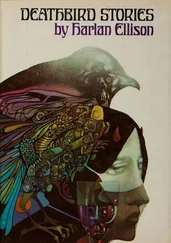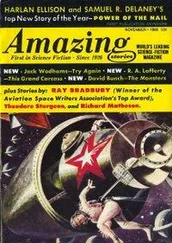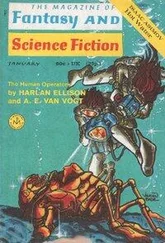Then his mind shifted, a camera playing across a landscape. He thought of the night before while the train lulled him. He had come to face his past again, last night, and though he had allowed himself to sink lower than he could ever remember, he now saw it all as clearly as in a crystal, and he knew there was a direction to everything.
He might never get to be the industrial designer he sometimes thought of himself as being, sometime in the future. He might never get free of the scum and filth of the streets.
But he knew one thing. He knew it sharp and clear and brightly shining the way a switch brightly shines. He was going to find the bastard who had killed his sister.
No heroics. No big man stuff. No fancy movie acrobatics. He was going to do it because it had to be done and because he knew he was the one to do it. The cops’d never find the guy. They didn’t know where to look. The cops’d never find him. They didn’t know who to ask. But Rusty knew. Rusty was part of it. He had helped Dolores along. He had fought with her that night, driven her into the waiting streets. He knew who to look for to give him the straight words and he knew how to make those people talk. He had the way and he had the drive. So it had to be him. He knew this as surely as he knew he would kill that man when he found him.
This time the apartment wasn’t dead stone quiet. This time Mrs. Ramirez and Mrs. Givens and Mrs. Guzman-Rolon from the building were there. This time a white-jacketed interne from the Charity Hospital was writing out a prescription and handing it to Mrs. Marroquin, who accepted it with furrowed brow and a pinched expression on her little brown, wrinkled face. This time Moms was down for an awful long count.
Collapse, he heard the interne say, before the man picked up his black bag and shouldered past, looking about with distaste at the shabby surroundings—not at all like the home of his parents on Central Park West.
This time it was bad. When it couldn’t get worse, it got lousy and lousier.
Rusty came through the open door with stark bewilderment shining dully in his eyes. The women turned as he came forward. Three of them sniffed the air, said something soft in Spanish, and slipped past, carefully, avoiding touching him. Rusty was alone with Mrs. Givens. He stared at her in mute appeal. She stared back with contempt on her dark face.
“You been away.” She said it so distinctly, even the accent was muffled. She said it with venomous undertones. Rusty was bewildered. Another shock right now was more than he could take and keep his balance.
“I—I stayed with a friend… overnight,” he stumbled. Her eyes mocked him. Her mouth twisted. She looked away, and her head tilted in a slight, peculiar movement.
“Su madre,” and he knew Moms was lying in there, where the sunlight was cut to nothing by the drawn blinds. He knew she would be pale and gaunt between the white, white sheets, and he did want to go in to see her.
“How… how is she…” He could not finish.
“ Sinverguenza!” she cursed him. “She is sick. She will die if she does not find some love. You live here, you don’t know her, you never know her! Now you all she got—and that borrachon— you don’t deserve to see her ever!”
Rusty flinched at mention of his father, but knew the woman was right. Pops was a drunkard, and a waste, and a bastard! He turned away, and wanted to run. She stopped him with a word, softly.
He turned back and she was bobbing her head in solemn understanding. There was no malice in her, just pity for the children of Angelita Santoro. She continued the up and down movement, her little head nodding evenly. Rusty felt the need to touch someone, to seek comfort somewhere. He moved toward the bedroom door, and she stepped back out of his way. She had been left by the protecting women of the building as a watchdog. She relinquished her guard only in crisis. She moved back for Rusty.
He looked down at her with a film over his eyes, as he passed, and his heart was very tight and very dry within him. “Muchisimas gracias,” he said softly, and watched his hand as it touched briefly at the thin fabric covering her shoulder. She bowed away without a word, and as he turned by the door, he saw only her back. She stared down from the window at the bedlam street outside. It was good to have friends.
He went into the room.
When he came out, when the sun had ceased its mechanical baking of the streets, when the night sky had rolled in across Manhattan, he was determined. Moms had come awake for a little while. She had slept deeply and it seemed to be nothing more than weariness that had felled her, but when she slowly rose up on her elbows—as he kneeled beside the bed, touching the edge of the sheet—he saw reason flood into her eyes. Then she looked at him and the message passed so clearly, so completely, so finally, there was no need for words. She put her white hand across his own tanned one and he kissed it fiercely. It was the message, and for the first time, really, the meaning to everything. There was a drive and a purpose and a goal. It might not have been the finest goal in the world, nor the most uplifting, but it was a real one. It was not something built in the mind; it was the stuff of blood and bone and flesh. Dolores’ bone and blood and flesh.
Moms had said it silently.
He had heard, and he would act on her words.
He would find the man. And when he did, that would be the end. Perhaps to his own life, perhaps, but definitely, it would be the end of the man’s life. Whoever he was.
Mrs. Givens was still at the window. He had no idea whether she had moved from that spot or stood there the whole long time. He closed the door, making certain the loose knob did not clank, and she turned half-around, cocking her head to one side. He came across the room and stopped near the outer door.
“Missus Givens?” She faced him slowly and he saw that the angled planes of shadow had changed her from a little nut-brown image to a pixie. Her eyes shone brightly by the lone lamp’s shine from the table.
“Watch her for me,” he said. She nodded briefly. She knew what he felt and she knew what had to be done. He was being given his freedom, to do what had to be done.
She turned back to the window and he left silently.
Monday night. Quiet out and an occasional cat in a back alley, battling it with another tom for a fish head. Cars mostly away for the night, and the office crowd preparing themselves for the sweaty day ahead. Hot and sticky. The T-shirts snug up under the armpits and the body heat melts you. The sound of TV sets filters dimly, like voices from another world, and snatches of beer commercials hit between the ball game patter. Natural night. Quiet night. Night to stay home and out of trouble.
Trouble night for Rusty Santoro.
The fuzzes rolling the streets in prowl cars, watching for auto strippers and sneak thieves. The beat cops carrying their billies with the wrist thongs dangling. Too hot to wind the stick. Everybody too weak and wet to move much.
Rusty walked past the bowling alley. Boarded up. The beat cop came around the corner as Rusty stopped before the nailed-up door. Rusty caught the flicker of T-shirt white at the cop’s open shirt neck, the shine of brass buttons, and he moved on slowly. That meant the Cougars were meeting somewhere else, if they were meeting tonight. And after what had happened to their drag, a definite rumble would be in the planning stages. He knew how they thought, and right now their thoughts were completely tied up with evening the score to the Cherokees.
He had to figure where they would go. To Tom-Tom’s? Not likely. The baby-faced soda clerk would probably close early, having heard about the trouble Friday night. He would want no difficulty so soon after a hot period like that. To someone’s home? Possibly, if the kid could get his parents out of the apartment. But that was still dubious, because a war council usually turned into an orgy—as did most club gatherings. The garage? Not again. Fedakowski who owned it had taken to carrying a Stillson wrench since the kids had been coming around. And he was too big and Polish to be screwing around with.
Читать дальше












